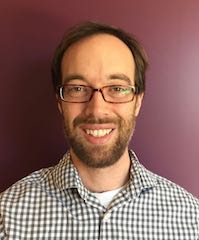
I am an Assistant Research Professor in the School of Earth & Space Exploration and the Center for Education Through Exploration at Arizona State Univeristy. I received my PhD in Isotope Geochemistry and Discipline-Based Education Research from ASU in 2014.
The unifying theme to nearly all of my education research and evaluation work is using digital technologies to improve science education. By now, the use of computers in education is ubiquitous, but that does not imply that these uses are always for the better. Through my work, I hope that I am helping instructors and the people who design and build digital lessons and resources to do their work more effectively. One area of particular interest for me is the use of Virtual Field Experiences, which can be a powerful tool for enhancing the curriculum in geology, ecology, and other disciplines where field learning is important. I am also very interested in the many ways that online learning is changing the landscape of education. Online learning has obvious benefits for accessibility. It is also unavoidably going to be the way that many students learn now and in the future. Therefore, research on student outcomes is essential to ensure that these new courses and degree programs provide experiences that are of similar quality to existing in-person offerings.
The links below describe some of my current projects.
-
Studying Digital Learning Experiences
My research has focused on understanding how digital learning experiences can be designed and used most effective in helping students to learn. Much of this work is design-based research, so I am fortunate to be working with the ETX Center at ASU, who are continually exploring new ways to make effective use of technology in education.
-
Learning through Virtual Field Trips
The ETX Center is one of the leaders in advancing the technology and learning design of what we refer to as immersive, interactive virtual field trips, or iVFT. I have previously published a curriculum & instruction study describing the design ideas behind iVFTs and demonstrating their educational effectiveness. Future work will explore the value of specific design approaches within virtual field experiences (VFEs) as well as their capacity to develop learners’ understanding of the process of science or transdisciplinary connections that go beyond science.
-
Inclusive Excellence
Most of my research examines how science education can be made more effective, but effectiveness only partially captures the overall mission of a university or other school. It is equally important that high quality education is equitably provided. I am currently working with a team at ASU funded by the Howard Hughes Medical Institute’s Inclusive Excellence program to study ASU’s growing online degree and course offerings in order to understand whether they are providing inclusive excellence. Our team made several important discoveries which we hope will continue to inform practices in the growing world of online science learning.
-
Educational Evaluation
In addition to my work in education research, I have served and continue to serve as project evaluator for projects funded by NASA, NSF, and the U.S. Department of Education.